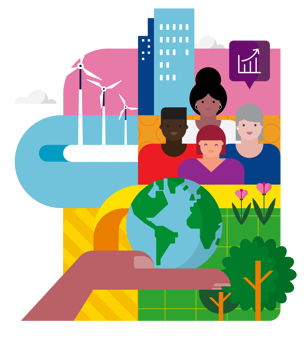Boxing up ESG: The impact of sustainability on the industrial and logistics sector
Environmental, social and governance (ESG) are no longer optional considerations in the industrial and logistics sector; they are essential. This is true for occupiers, investors and developers alike, who have been placed under increasing pressure to take responsibility for sustainable initiatives.
